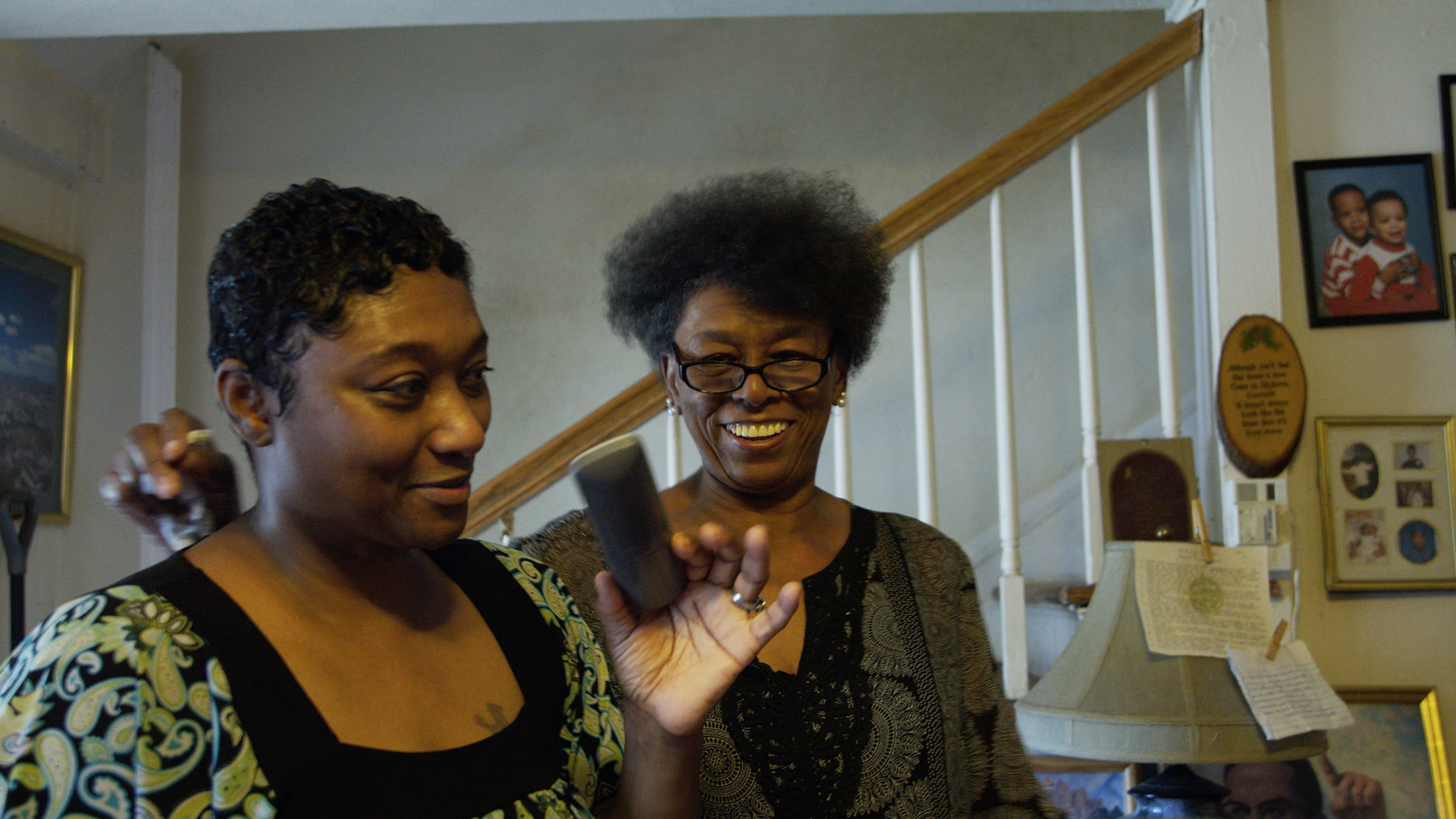
CALLS FROM HOME
USA 2023 31 min
A longstanding radio program sends familial messages of love to people incarcerated in Central Appalachia. Directed by Sylvia Ryerson, a former DJ for the show, CALLS FROM HOME follows the weekly broadcast through prison walls, portraying the many forms of distance that rural prison building creates—and the ceaseless work to end the racist system of mass incarceration and family separation.
DIRECTOR’S STATEMENT
Central Appalachia today is one of the most concentrated regions of rural prison and jail growth nationwide. The region now hosts 16 prisons, including the notoriously violent supermax men’s Wallens Ridge State Prison (WRSP) and Red Onion State Prison (ROSP), in far southwest Virginia. Most are built on formerly mined land, in counties that are all overwhelming white. Virginia is one of twelve states where more than half the prison population is Black, in addition to the vastly disproportionate representation of other people of color behind bars, making clear the spatial contours of this invisibilized regime of racial apartheid.
But amidst and against this carceral geography is another story: the making of an abolitionist geography, within and between the very places that are the most (differentially) impacted by the overlapping processes of incarceration, extraction, and abandonment. For over two decades, WMMT-FM 88.7 Mountain Community Radio, located at the Appalshop media arts center in Whitesburg, Kentucky (population 2,139), has been sending out toll-free messages over the airwaves, from family members to their loved ones incarcerated far from home.
I co-directed and co-hosted Calls from Home for four years, and it is through this work that I came to know the people and stories featured in this film. Over countless Monday nights of answering the phone lines, talking with family members, and recording their messages, I learned how for many, the show is their primary contact; exorbitant prison phone rates make communication costly, and the lack of public transportation to the region makes visitation impossible for many. I also experienced how the airwaves created a space for building political community between prison walls and between disparate geographies profoundly impacted by mass incarceration.
This short film grows from these relationships and from over a decade of collaborative media making and organizing through prison walls. Inspired by the Black feminist praxis of the film Time (2020), this film centers the stories of those on the other end of the phone line, telling an intimate, character driven story that probes another fundamental dimension of the PIC: that of distance. How to account for this distance: 500 miles, a nine-hour drive, years without touching someone; the impossibility of getting to visitation, and the fear of arriving at a distant mountaintop, only to be turned away? How can a fragile phone line, bridging worlds torn apart, transform into a radio frequency that transcends prison walls, enacting abolitionist worldmaking through networks of kinship and care?
( ( ( ( ( ( ) ) ) ) ) )
This film was funded by Working Films’ Docs in Action program, with additional support from Appalshop’s Community Media Initiative (CMI). It is a part of Working Films’ Beyond Walls project, an organizing initiative featuring documentary films that define and amplify what prison industrial complex (PIC) abolition means, while inspiring people to imagine and take action toward a world without policing.
Working Films and Appalshop together believe that power emanates from the ground up, and that grassroots leaders and directly impacted people should hold the power to determine what stories are told and what films are funded to serve their movements. All films in the Beyond Walls compilation, including Calls from Home, were selected for funding and distribution by organizers with the Center for Political Education, Critical Resistance, MPD150, and Survived + Punished in partnership with Working Films.